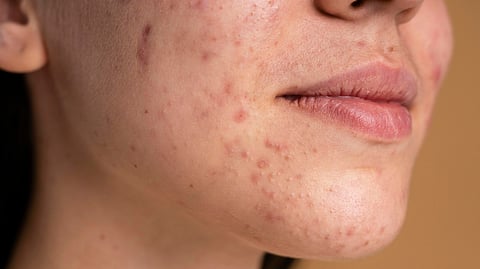The Truth Behind the “Shampoo for Acne” Trend: Safe or Skincare Slip-Up?
Acne is a common skin condition that can be caused by various factors, including bacterial overgrowth, hormonal fluctuations, and yeast infections. Understanding the type of acne is key to choosing the right treatment. Bacterial acne, triggered by Cutibacterium acnes, leads to inflammation and can affect individuals of all ages, often appearing due to clogged pores and excess oil. Hormonal acne typically appears along the lower face and jawline, particularly in adult women, as a result of increased androgen levels stimulating oil production. Fungal acne, caused by an overgrowth of yeast, does not respond well to conventional acne treatments and requires antifungal interventions.
Some beauty trends suggest using antifungal dandruff shampoos on the face to manage fungal acne. Ingredients like ketoconazole and selenium sulfide, commonly found in these shampoos, have antifungal properties that may help reduce yeast overgrowth when applied briefly. This approach is usually limited to a few times per week with short contact before rinsing. However, it is important to note that most acne is bacterial rather than fungal, so this method is not universally effective.
In response to the growing trend, Dr. Kunal Sood, a double-board-certified anesthesiology and interventional pain medicine physician practicing in Maryland, USA, clarified that the trend is only for fungal acne that doesn't respond to conventional anti-acne treatments.
Additionally, anti-dandruff shampoos contain detergents and surfactants formulated for scalp use, not for the delicate skin of the face. Prolonged or frequent use can lead to irritation, dryness, or worsening of acne in some individuals. Experts clarify these shampoos should not replace standard acne treatments such as benzoyl peroxide, salicylic acid, or retinoids, which are specifically designed to reduce bacteria, unclog pores, and control oil production.
For those experiencing persistent acne, consulting a dermatologist is essential. A professional can determine the type of acne and recommend targeted treatments, which may include topical or oral medications, lifestyle adjustments, or hormonal therapy. Using anti-dandruff shampoo as a facial treatment should be considered only with caution and under guidance if fungal acne is suspected.
In summary, while anti-dandruff shampoos have antifungal properties that may help in rare cases of fungal acne, they are not a universal solution and can pose risks to facial skin. Proper diagnosis, skin care, and evidence-based treatments remain the safest and most effective ways to manage acne.
(Rh/Eth/TL/MSM)


